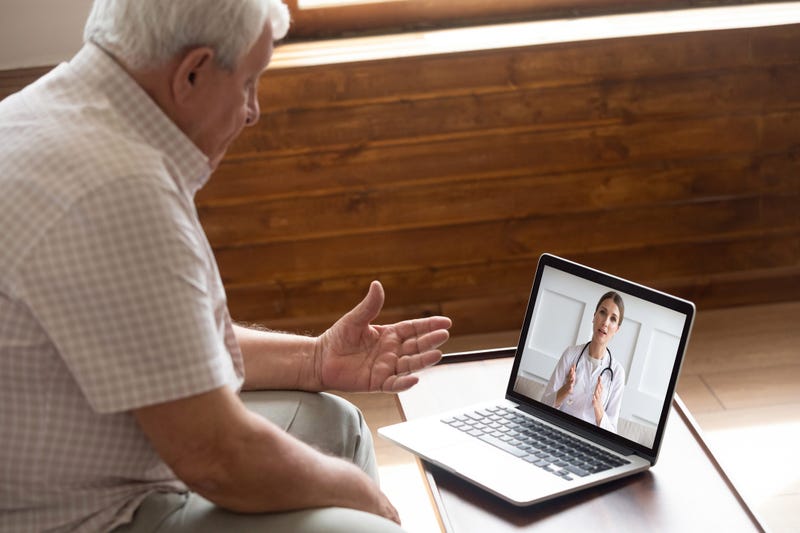
Shelter-in-place orders have forced people to adapt to functioning remotely, but a University of California, San Francisco (UCSF) study out Monday suggests telemedicine is not the universal answer to health care, especially among older adults.
The fear is that more of them are being left behind.
Until now, it has been hard to gauge how many people were not connecting with their doctors because of the coronavirus pandemic. UCSF researchers looked at over 4,500 patients and found more than a third of those over the age of 65 have a hard time with telemedicine, especially those in low-income, remote or rural areas.
Dr. Kenneth Lam is a clinical fellow in geriatrics and lead author of the study in the Journal of the American Medical Association Internal Medicine, and he told KCBS Radio that telemedicine has many benefits and is here to stay.
"I worry," he said. "As a geriatrician who specializes in seeing older people and seeing them regularly, and seeing what it’s like for some of them, that we haven’t really been putting the safeguards in place to make sure the issues of accessibility are also addressed."
He likened it to building a medical clinic, where ramps and elevators are installed for accessibility, but now that those clinics are virtual, is anyone paying attention to whether people are having a hard time getting in?
Older adults account for a quarter of all medical office visits, the problem, much like with distance learning, is connectivity: Do they have internet, do they know how to use it, can they email or text? If they don't, Dr. Lam said no amount of simplification, whether it’s a Zoom Call or Facetime, is going to help.
